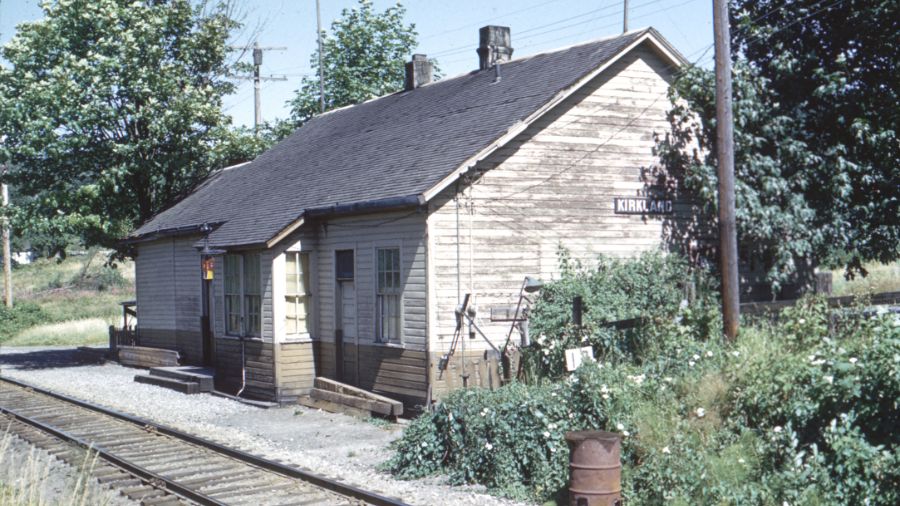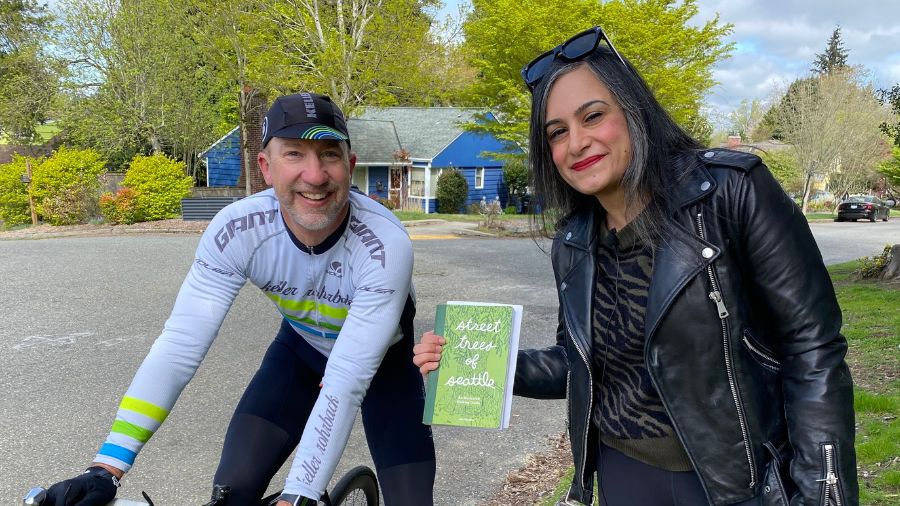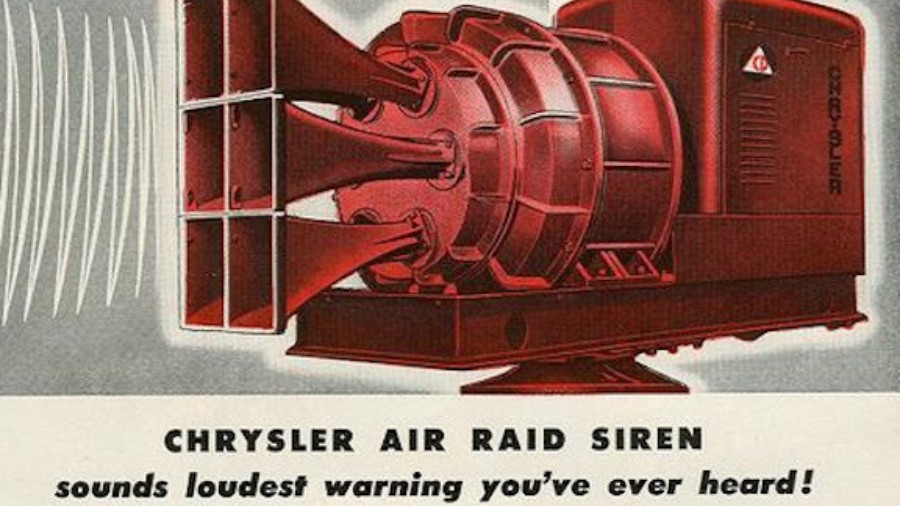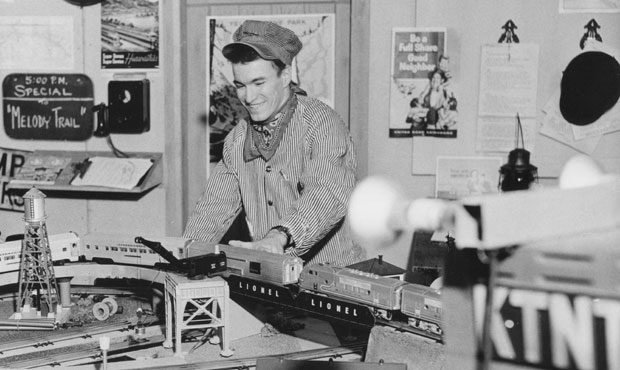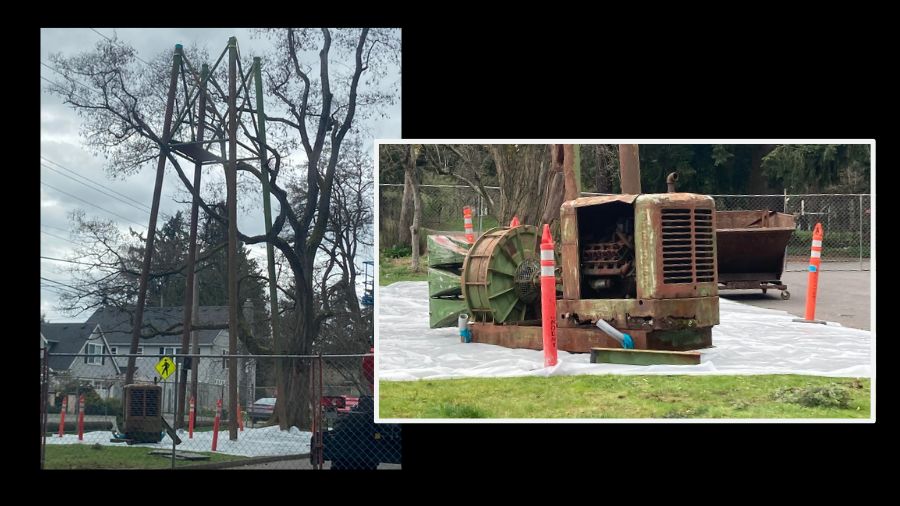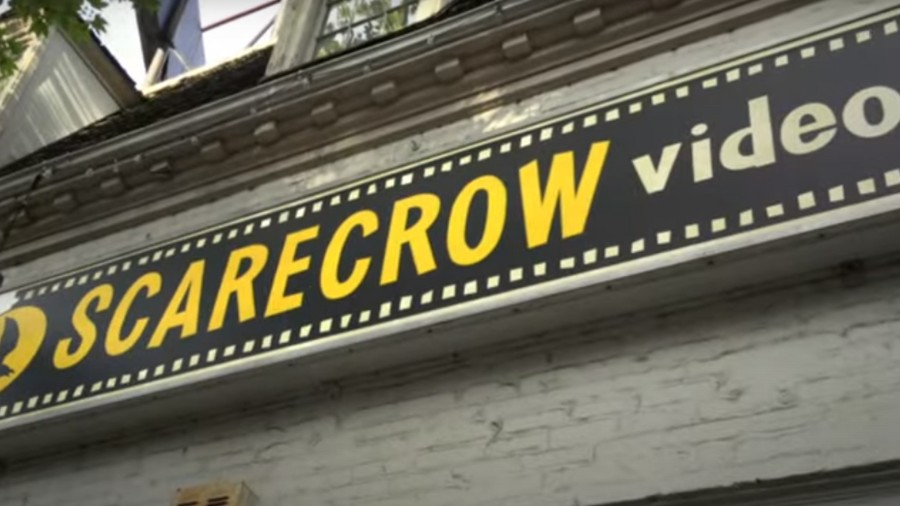How Seattle observed VE Day in 1945
May 8, 2023, 8:27 AM | Updated: 11:33 am

Sailors at King Street Station in Seattle read newspaper reports of "VE Day" or Allied victory in Europe. (Courtesy MOHAI)
(Courtesy MOHAI)
When VE Day – marking Allied “victory in Europe” – came to Seattle on Tuesday, May 8, 1945, the sidewalks weren’t jammed with jubilant sailors kissing nurses, and no confetti rained down on the streets. While London and other European capitals had much to celebrate in this fashion nearly 80 years ago this week, the appropriate time for such revelry in Seattle would come later, perhaps. But VE Day marked victory only in Europe, which, while certainly a good thing, meant that the war with Japan continued until who-knew-when.
News of German surrender to the Allies began leaking out early on the morning of Monday, May 7. Associated Press reporter Edward Kennedy ignored an embargo and managed to file a dispatch with details of a surrender ceremony at General Eisenhower’s headquarters in Reims, France. Though lacking official confirmation, the story was widely printed by newspapers and carried by the four national radio networks. Speculation about the cessation of hostilities was further fueled when CBS in New York reported that it had monitored an American broadcast in France (around 8:30 a.m. Monday, Seattle time) announcing Germany’s surrender and the end of the war in Europe.
Meanwhile, since word had come from the AP but not yet from sources within the government, officially laid plans for marking the occasion were thwarted in many American cities, including Seattle. Plans had called for bars, taverns, and liquor stores in the Evergreen State to close upon announcement of VE Day. The Seattle Times quoted two different State Liquor Control Board officials in the Monday afternoon paper: one who was telling licensees to close, another who told them they could remain open. Similar confusion led officials at one Seattle area defense plant to schedule and then cancel a noontime moment of silence and prayer.
Ultimately, local authorities decided to wait for formal proclamation of VE Day before taking any official action. Thus, the mood in Seattle on Monday was described by one reporter as “joy mingled with sober thoughtfulness.” People went to school or work, and many took time to pray for those already lost in the conflict or still in harm’s way. While not exactly business as usual, local retail, educational, religious and government entities (not to mention bars, taverns, and liquor stores) continued doing their patriotic duty by remaining open.
Around midday Monday Seattle time, the White House announced that President Truman would refrain from making an official announcement until a simultaneous statement could be made by the U.S. and its two major allies in the fight against the Nazis — Great Britain and the Soviet Union. Later Monday it was announced that President Truman would address the nation at 6 a.m. Seattle time on Tuesday.
To prepare for preemptory revelers possibly taking to the streets Monday night, Seattle Mayor William Devin had Police Chief Herbert Kimsey call in 300 extra police officers beginning at 6 p.m. But by 9:30 p.m., the streets were quiet and the extra officers were sent home. The Seattle Times reported that police made 105 bookings, compared to 125-150 on an average night. In honor of the victory that seemed to be so close at hand, one municipal judge marked the occasion by suspending the sentence of every defendant accused of drunkenness.
After a relatively quiet Monday night, the sun came up over the Cascades on a gorgeous early May morning. Then, just after 6 a.m., President Truman was heard via radio in Seattle homes, offices and factories making the official announcement of VE Day, Allied victory in Europe. At the same time (though heard in the U.S. just after Truman through rare network radio use of a recording), British Prime Minister Winston Churchill addressed the people of Great Britain. Stalin would make his address to the Soviets a day later.
As during the preceding decade of international crises and nearly six years of world war, radio listeners in Seattle could choose to listen to national coverage from CBS via what’s now KIRO Newsradio; NBC via what’s now KNWN; the Blue Network (formerly NBC Blue) via KJR; and Mutual via KOL.
On all four national radio networks, Seattleites heard President Truman invoke the recent death of FDR in the second line of his remarks: “This is a solemn but a glorious hour. I only wish that Franklin D. Roosevelt had lived to witness this day. General Eisenhower informs me that the forces of Germany have surrendered to the United Nations. The flags of freedom fly over all Europe.”
The president went on to urge “every American to stick to his post until the last battle is won. Until that day, let no man abandon his post or slacken his efforts.”
President Truman concluded his address by declaring the coming Sunday, May 13 — Mother’s Day — a day of prayer. “I call upon the people of the United States, whatever their faith, to unite in offering joyful thanks to God for the victory we have won, and to pray that He will support us to the end of our present struggle and guide us into the ways of peace. I also call upon my countrymen to dedicate this day of prayer to the memory of those who have given their lives to make possible our victory,” President Truman said.
Over at Boeing headquarters on Marginal Way South, an internal memo dated May 8, 1945 8 a.m. was hurriedly sent by teletype to J.L. Valentine, superintendent of the Renton plant, and to superintendents at Boeing’s branch plants. The memo read, “There will be no interruption of work for news bulletins and special programs as originally planned, since news was complete before workers came on shift.”
The memo went on to outline a suggested program for the “first rest period this morning,” including sharing remarks from Carroll E. French, Boeing Director of Industrial Relations, which foreshadowed the role the B-29 would play in dropping the atomic bombs and hastening the eventual Japanese surrender:
“Men and women of Boeing: This is a great day in history. All of us heard the thrilling news of German surrender with thanksgiving and pride in the knowledge that the mighty weapon forged here at Boeing — the Flying Fortress — played a magnificent role in that victory. On behalf of the Boeing Company, I wish to extend to you all our heartiest thanks and congratulations for your own splendid efforts which have helped to make this victory possible. But let us reflect — just for a moment — on the job that remains against Japan. Many of us have relatives in the Pacific and all of us are vitally concerned with production of the mightiest air weapon of the war — the Boeing B-29 Superfortress. We here at Boeing — perhaps more so than in any other war plant in the nation — know that we must stay in this fight until Japan is pounded into submission and defeat — until the other half of our war job is done. Germany is out of the way. Now let’s show Japan what total war really means!”
Next came a Stokowski recording of the Star Spangled Banner, and then a prayer written by an Army chaplain. A three-second blast of the factory whistle gave workers notice that the rest period and the VE Day celebration was over, and that production would resume in 60 seconds.
Later on Tuesday, Mayor Devin echoed what President Truman had said and what Boeing had told its workers, and what Seattle’s shipyards had likely told theirs. “This is not the appropriate time to celebrate. Men still are dying. This is not the time to make revelry. Ships and planes still are needed. This is the time humbly and reverently to give thanks to God for the victory which is ours, to renew our hope and trust, and to work harder than ever before,” Mayor Devin said.
And apparently people listened, because Tuesday night was even quieter than Monday. Of course, official exhortations aside, the quiet could have been because of one crucial difference. This time, VE Day was official. The bars, taverns and liquor stores were closed.
Editor’s note: a version of this story originally appeared in Crosscut.
You can hear Feliks every Wednesday and Friday morning on Seattle’s Morning News with Dave Ross and Colleen O’Brien, read more from him here, and subscribe to The Resident Historian Podcast here. If you have a story idea, please email Feliks here.


